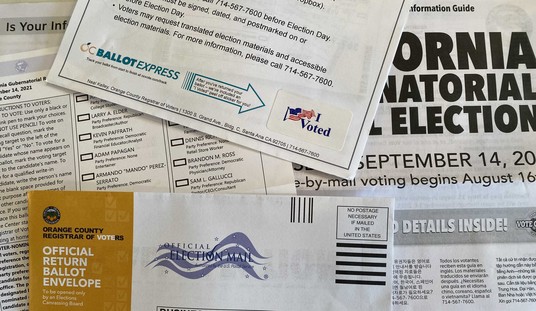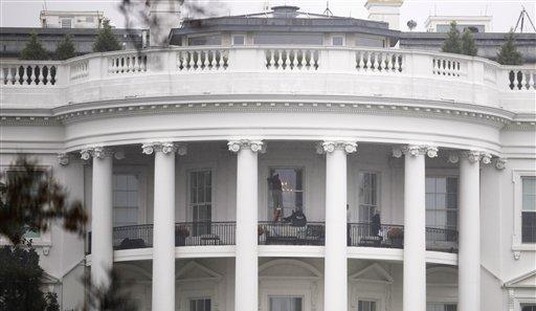 Master Sergeant Joshua Wheeler of Roland, Oklahoma, was advising a group of peshmerga commandos when he heard them come under attack inside an Islamic State prison.
Master Sergeant Joshua Wheeler of Roland, Oklahoma, was advising a group of peshmerga commandos when he heard them come under attack inside an Islamic State prison.
Even though he wasn’t supposed to engage the enemy, this highly decorated, 39-year-old father of four “ran to the sound of the guns,” according to Defense Secretary Ash Carter. His actions saved his unit, but cost him his own life.
The picture emerging of Sgt. Wheeler’s performance in combat shows he acted in the best traditions of the United States armed services while disregarding his own safety to save his teammates.
Carter portrayed Wheeler as a hero and said he would be present when Wheeler’s body is returned to the U.S. on Saturday.
“As the compound was being stormed, the plan was not for the U.S. … forces to enter the compound or be involved in the firefight,” Carter said. “However, when a firefight ensued, this American did what I’m very proud that Americans do in that situation, and he ran to the sound of the guns and he stood up. All the indications are that it was his actions and that of one of his teammates that protected those who were involved in breaching the compound and made the mission a success.”
“That is an inherent risk that we ask people to assume,” Carter added. “Again, it wasn’t part of the plan, but it was something that he did, and I’m immensely proud that he did that.”
Carter noted that his understanding of what happened is based on early reports.
After his remarks at the Pentagon, other U.S. officials said the plan for the rescue mission had called for the U.S. special operations troops, who are members of the elite and secretive Delta Force, to stay back from the prison compound and let the Kurds do the fighting. The Americans transported the Kurds to the scene aboard five U.S. helicopters.
Carter said the U.S. and its Kurdish partners collected valuable intelligence at the scene, including documents and electronics. This, he said, shows “the great value of raids of this kind, and I expect we’ll do more of these kinds of things.”
In explaining his decision to approve the use of U.S. troops to support the Kurds in their rescue mission, Carter said there was intelligence indicating that those inside the prison compound faced mass execution by their Islamic State captors.
“Their graves had already been prepared,” he said. Asked how he knew this, Carter said: “It happens that we had seen that beforehand. We were watching this compound” after Kurdish authorities determined that it held numerous hostages.
“The graves were right next door to the compound,” he said, adding that although it was impossible to know for certain that their purpose was to dispose of executed prisoners, “it sure looked like that.”
Wheeler compiled an astonishing record as a combat infantryman and special operator:
He was first assigned to Company C, 1st Battalion, 24th Infantry Regiment in Fort Lewis, Washington
In 1997, he transitioned to Company B, 2nd Battalion, 75th Ranger Regiment, Fort Lewis, Washington. Over the next seven years, he worked his way up the ranks from infantryman, rifle team leader, squad leader, weapons squad leader, and anti-tank section leader.
In 2004, Wheeler was assigned to U.S. Army Special Operations Command.
During his military careers Wheeler was deployed at least 17 times — most of those in support of combat operations in Iraq and Afghanistan, the Army said.
Wheeler’s awards and decorations for his service were numerous and include four Bronze Star Medals with Valor Device, seven Bronze Star Medals, the Defense Meritorious Service Medal, the Meritorious Service Medal, the Air Medal, the Joint Service Commendation Medal with Valor Device, the Joint Service Commendation Medal, seven Army Commendation Medals, the Joint Service Achievement Medal, eight Army Achievement Medals, the Good Conduct Medal (6th award).
He also earned the National Defense Service Medal with Bronze Service Star, the Afghanistan Campaign Medal with 3 Bronze Service Stars, the Iraq Campaign Medal with six Bronze Service Stars, the Global War on Terrorism Expeditionary Medal, the Global War on Terrorism Service Medal, the Noncommissioned Officer Professional Development Ribbon (3rd Award), the Army Service Ribbon, the Presidential Unit Citation, the Valorous Unit Award (2nd Award), the Ranger Tab, the Combat Infantryman Badge, the Expert Infantryman Badge, the Master Parachutist Badge, and three Overseas Service Bars.
This was a man who lived to fight and fought to win. He was the first American serviceman killed in combat with Islamic State, and from a description of his actions and his service record, his absence will be sorely felt by his comrades and his unit.










Join the conversation as a VIP Member